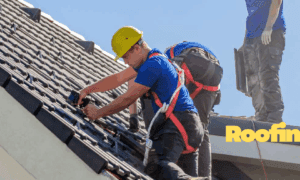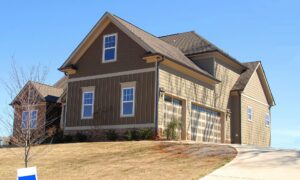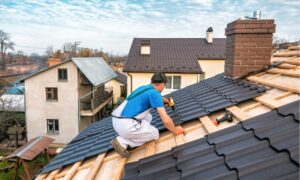Any building must have a roof because it protects the interior from the elements and keeps it dry and secure. But not every roof is the same, and there are important distinctions between commercial and residential roofing. We’ll go over the fundamentals and clarify the distinctions between commercial and residential roofing.
What are Commercial Roofers?
Commercial roofers are roofing contractors with a focus on the installation, upkeep, and repair of roofs for commercial structures such offices, factories, warehouses, retail establishments, and other similar buildings. Because of the scale and intricacy of the roofs, which are frequently flat or low-sloped and cover a considerable area, commercial roofing requires specialized expertise and equipment.
Commercial roofers frequently have experience dealing with a range of roofing materials, including built-up roofing systems, modified bitumen, EPDM, TPO, and PVC. They have the skills necessary to set up and fix roofing systems that can resist constant foot traffic, heavy machinery, and severe weather. To offer their clients the greatest options, they are also knowledgeable about the most recent roofing technology and trends.
Selecting a trustworthy commercial roofing contractor with expertise and positive evaluations is crucial. A trustworthy contractor will evaluate your roofing needs, suggest the best roofing system for your structure, and do high-quality work that will safeguard your property for many years.
What are Residential Roofers?
Residential roofers are roofing professionals who focus on installing, maintaining, and repairing roofs for residential buildings including houses, apartments, and condos. In contrast to commercial roofing, which often has flat or low-sloping roofs, residential roofing frequently uses sloped or pitched roofs.
Asphalt shingles, metal, tile, and wood shakes are just a few of the roofing materials that residential roofers are qualified to work with. They are qualified to evaluate the state of a roof and suggest the best course of action for repair or replacement. Residential roofers may assist customers in choosing the best roofing materials for their homes by taking climate, financial constraints, and aesthetics into account.
It’s crucial to select a trustworthy home roofing contractor with expertise and positive recommendations. A trustworthy contractor will evaluate your roofing requirements, suggest the best roofing system for your house, and carry out the work with high-quality materials and workmanship to safeguard your property for many years. They will also offer a warranty on their work, providing you with peace of mind that your roof is protected if any flaws or problems occur.
Let’s Check Out the Differences
Design and Materials
It’s crucial to select a trustworthy home roofing contractor with expertise and positive recommendations. A trustworthy contractor will evaluate your roofing requirements, suggest the best roofing system for your house, and carry out the work with high-quality materials and workmanship to safeguard your property for many years. They will also offer a warranty on their work, providing you with peace of mind that your roof is protected if any flaws or problems occur.
Construction Methods
Different building techniques are needed for commercial roofing than for residential roofing. Insulation and a waterproofing membrane are often needed on commercial roofs to shield the structure from moisture and leaks. A drainage system can also be necessary to direct water away from the roof. On the other hand, residential roofing may need roof sheathing, attic ventilation, and flushing to stop leaks.
Cost
Due to the size of the roof and the materials needed, commercial roofing is often more expensive than residential roofing. Additionally, the cost of commercial roofing is increased by the need for specialized tools and installation methods.
Maintenance
Due to their size and flat shape, commercial roofs require more upkeep than residential roofs. To keep the roof leak-free and watertight, routine inspections and maintenance are required. Residential roof maintenance is also necessary, albeit usually on a lesser scale.
Choosing the Right Roofing Contractor
For any roofing project, whether commercial or residential, picking the correct roofing contractor is essential. It’s crucial to find a roofing contractor who has experience with the type of roofing you require. Look for contractors who have a history of producing high-caliber work, are licensed, and insured, and possess these qualities. To be sure that your roof will be secured for many years to come, also consider the contractor’s warranty and maintenance plans.
Conclusion
Anyone considering a roofing job must be aware of the differences between commercial and residential roofing. The materials, designs, building techniques, costs, and maintenance requirements for commercial and residential roofs are different. It’s crucial to pick a roofing contractor who specializes in the style of roofing you require for your house or building. You can feel secure knowing that your property is shielded from the elements if the proper roofing system and contractor are used.



































